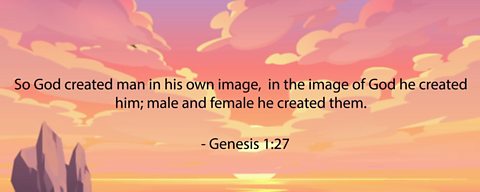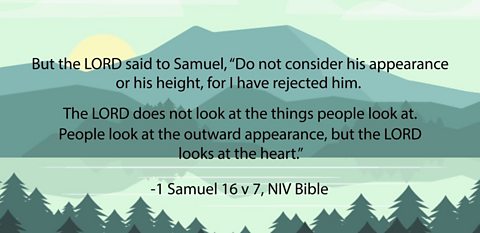Why Value Yourself?
Simon explains to Sarah why everyone is unique and is of equal value
A personÔÇÖs sense of who they are and the value they hold depends on many things. For example:
- Who they think they are
- What they believe about themselves
- What story they are inhabiting

Identity is something that gets formed in a person from the moment they are born. Very often in families growing up, people become known by a specific attribute, for example; the sensitive one, the shy one, the loud one.
This can become a positive or negative thing, and it begins to shape a person from a very young age.
Growing up people often elevate certain parts of who they are, where they come from, circumstances they find themselves in and look for identity, meaning and purpose in those things.
Everyone has a personal narrative that gives meaning to their lives and fears.
Narratives can be true or false and they influence how people view themselves. Some negative narratives might be:
- No one notices me
- IÔÇÖm ugly
- IÔÇÖm not good at anything
- No one would want to be friends with me
In Genesis it says humans were ÔÇÿcreated in the image of GodÔÇÖ. The word created implies design, intention, made with purpose. Christians believe God made humans with intrinsic value.

Did you know?

No two people in the world have:
the same DNA ÔÇô except genetically identical twins
the same fingerprints ÔÇô even identical twins
the same pattern in the iris of their eye.

Image

Some people have a DistortedWhen a person views themselves in a way that is not accurate - them may have a negative view of their physical appearance, values, intelligence, or talents. view of their life and as a consequence have very low self-esteem. Sometimes people struggle to face who they really are and want to live another personÔÇÖs story.
This is one of the greatest pressures that social media puts on people.
69% of social media users admitted they felt shame about their untruths and cannot live up to their online images.
Often what people believe about themselves to be true, crowds out the reality of who they are: a unique individual with intrinsic value.
Christians believe identity is not self-motivated, a person cannot try hard to get it. It is God given.

What the Bible says about a person's value
Christians believe a personÔÇÖs value and worth comes from God who created them. The Bible is full of verses that say each person is:
- Accepted: John 1:12 I am GodÔÇÖs Child
- Secure: Philippians 1:6 I am confident that God will complete the good work He started in me
- Significant: Ephesians 2:10 I am God's workmanship
ChristianÔÇÖs believe every person is valuable with a specific set of giftings and talents.
All the things that makes a person unique were intentional on GodÔÇÖs part. It is these things that enable a person to perfectly fulfil their purpose that God created them for.
Everyone is different and so peopleÔÇÖs purposes are different too.
The Parable of the Talents ÔÇô Matthew 25: 14-30

This parable encourages people to use the gifts and talents God has given them.
At the time of Jesus, the term 'talent' denoted 'money.' However, when interpreted in today's context, the parable emphasises the idea that talents grow when they are used.
This inspires Christians not to hide their abilities but to employ and develop them for positive impact.
- Regardless of what skill an individual excels at, the parable emphasises the distinctiveness and inherent worthiness of each person in the eyes of God.

Katie Piper ÔÇô An Inspirational Story
 Image source, James Watkins/│╔╚╦┐ý╩Í
Image source, James Watkins/│╔╚╦┐ý╩ÍKatie Piper is an English writer, activist, television presenter and model.
In March 2008, she wasÔÇ»attacked with acid by her ex-boyfriend and an accomplice, causing major damage to her face and blindness in one eye. Piper underwent pioneering surgery to restore her face and vision. Both attackers were convicted and given life sentences.
In 2009, Piper gave up her right to anonymity in order to increase awareness about burn victims. Her experience was documented in the 2009ÔÇ»Channel 4ÔÇ»documentaryÔÇ»Katie: My Beautiful FaceÔÇ»part of theÔÇ»Cutting EdgeÔÇ»s▒░¨¥▒▒▓§.
Her main work has been for the Katie Piper Foundation, which she founded to help victims of burns and other disfigurement injuries.
"I don't have to pretend to be someone I'm not and I think talking so openly about my story gave me acceptance that it's ok to be me.ÔÇØ ÔÇô Katie Piper
 Image source, James Watkins/│╔╚╦┐ý╩Í
Image source, James Watkins/│╔╚╦┐ý╩ÍQuiz time!
More on Morality and ethics
Find out more by working through a topic
- count6 of 7

- count7 of 7

- count1 of 7

- count2 of 7
